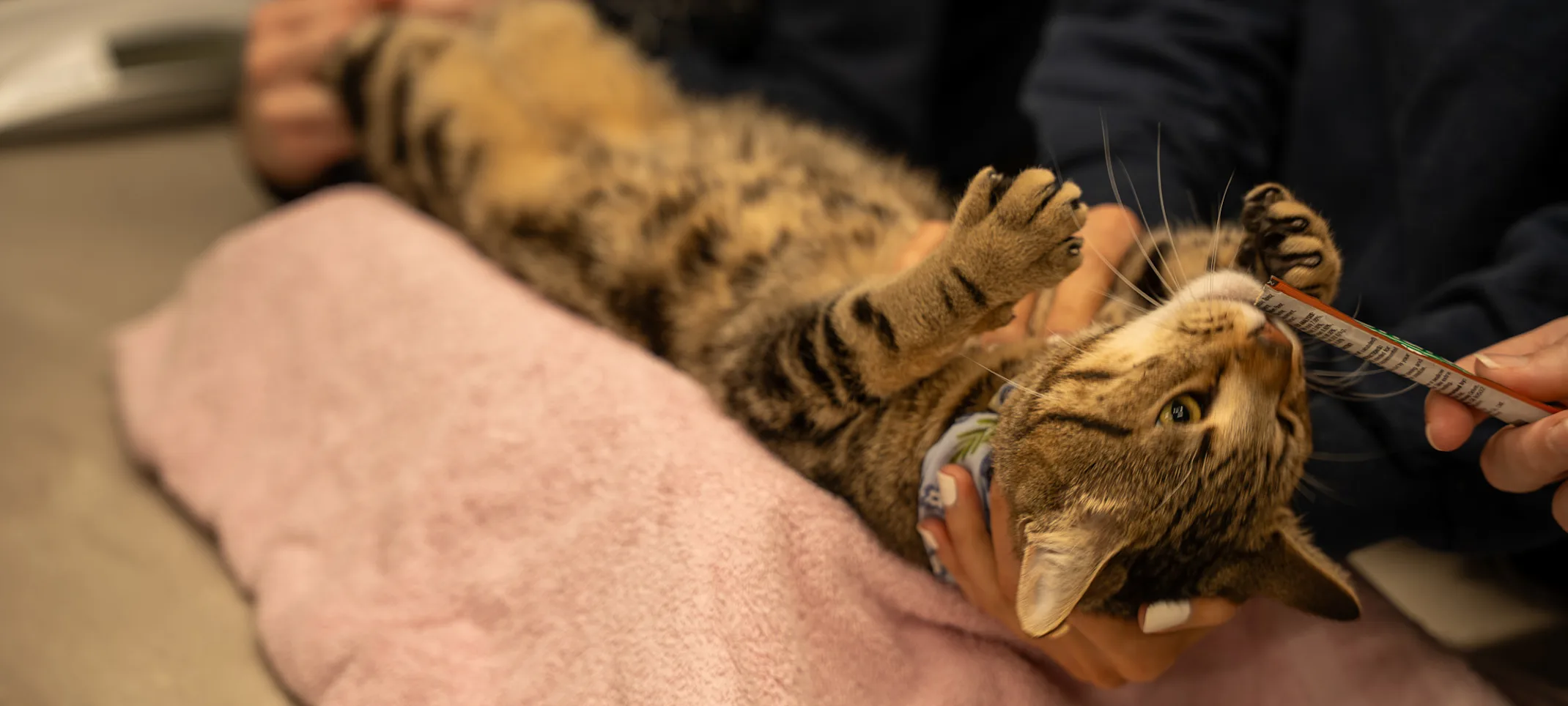Civic Feline Clinic
Spay & Neuter
Spaying or neutering your pet can help them live a longer, healthier life, minimize behavior problems, and help control the stray population.

Overview
Neutering (spaying or castrating) your cat benefits your companion as well as your community. Firstly, you will help control the ever-growing homeless pet crisis that results in millions of healthy cats being euthanized across the United States every year. Neutering your pet prevents reproduction and decreases the number of unwanted and unowned cats. As importantly, it offers substantial benefits to your friend’s health and curbs undesirable behaviors.
Spaying
Spaying your cat will prevent her from coming into heat. Intact females can enter multiple heat cycles influenced by seasonal changes: around January, a female cat will come into heat every 7-10 days until she is bred or the amount of daylight decreases, usually around September or October. Cats kept indoors and exposed to artificial light may cycle year-round. During her heat cycle your companion may vocalize excessively, assume breeding postures, and urinate frequently.
Spaying her eliminates any potential pregnancy. Further, it eliminates the risk of certain diseases including ovarian cancers and infections of the uterus, and greatly decreases the risk of mammary cancer, especially if they have the surgery before their first heat cycle. The surgery limits undesirable behaviors associated with sexual maturity such as calling out, crying, and the desire to escape the household. Finally, some studies suggest that spayed animals may enjoy a longer life than intact animals.
The surgery itself, the ovariohysterectomy, is performed under general anesthesia: a small incision is made in the abdomen and the reproductive tract, both ovaries, and the uterus are removed. The incision is then closed with multiple layers of sutures under the skin. The skin is closed with tissue adhesive, skin staples or additional sutures. Although the surgery can be performed on patients as young as 6-14 weeks of age, we typically recommend spaying cats at 4-6 months of age, before they enter their first heat. Recovery is usually quick, involving pain management at the hospital and at home, and restricted activity for the week or so following surgery.
Castrating
Castration prevents testicular cancer and may help prevent some prostate diseases. Some studies suggest that neutered animals may have a longer life span than intact counterparts.
Because the surgery eliminates the production of hormones responsible for sexual behavior, castration eliminates or decreases unwanted behaviors associated with sexual maturity such as roaming, urine marking, fighting, inappropriate urination, and aggression.
Castration is a surgery performed under general anesthesia in which both testicles are removed through a small incision in the scrotum. The incision can be left open to heal o its own or, as is our preference, closed with a small amount of tissue adhesive.
